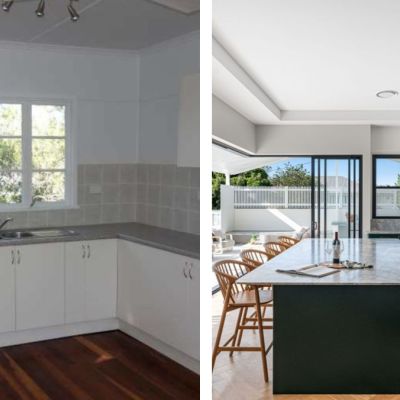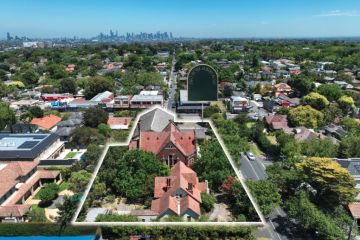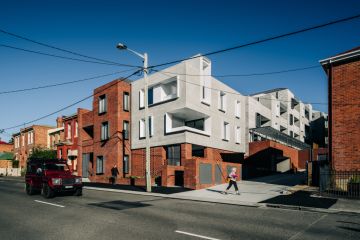Doing a home reno has been gruelling. This year that’s set to change
Home renovations are expected to become more popular in 2025 if interest rates fall and make the sums more viable, and homeowners can look forward to good news in the form of more stable material prices and increased industry competition, experts say.
It will still be challenging to find tradespeople to work on projects, however, as the construction industry grapples with an ongoing skills shortage.

Renovation activity was down in 2024, ABS, Commonwealth Bank and Macrobond data show, but still at higher volumes than in pre-COVID years.
CBA economist Harry Ottley said some renovators could still find it an expensive venture because construction costs remain much higher than they were before the pandemic.
“The massive rise in costs has caused a lot of issues in the construction sector,” he said. “The issue is of course the price level is much higher than pre-COVID – 42 per cent higher than 2019 – and it won’t be going back.
“So your renovation in 2025 will be much more expensive than what you are used to if you haven’t renovated in a while.”
In upbeat news for owners, Housing Industry Association chief economist Tim Reardon said it was unlikely that material costs would spike in 2025 as they had in recent years.
“What we are expecting is that material prices will continue to rise, we don’t expect to see a decline in material prices,” he said. “But we’re expecting price increases over the next few years in line with CPI.”
The Melbourne Builder and Co founder Dale Cheesman said it was normal to see some increase in prices.
“My statement to people all the time is: the cheapest time to build was yesterday. Costs are always going to continue to go up,” he said.
Ottley said finding tradespeople to get the job done would be a challenge.
“Even if there is more renovation activity next year, it is likely it will still be very difficult to find a tradie,” he said. “Capacity constraints in the construction sector remain high, and there is lots of work to be done across residential construction and large infrastructure projects, which is soaking up the supply of skilled construction labour.
“There is also a lot of renovation work to be done due to long delays plaguing the sector after a period of very strong demand.”
Cheesman agreed. “It’s still very hard to find good tradies looking for work,” he said. “There’s just a skills shortage across the industry. It’s the same as restaurants who are struggling to get great staff.
“I think there are easier ways to make money these days, in the crypto markets and things like that, than being on the shovel.”
Reardon expected interest in renovating to pick up over the year. “We do expect the reno market to remain quite strong,” he said. “The slowing in new home building and the rise in land prices will mean households will increasingly be going to make the decision to renovate the existing home rather than build a new one.
“It’s a pretty positive outlook.”
In another hopeful development, Cheesman said a Reserve Bank rate cut should make renovating more viable. “The sums will add up, and they’ll be able to refinance. Brokers and lenders will see they can potentially borrow more and afford the renovation.”

If the economy improved after the cash rate was cut, Cheesman said would-be renovators could benefit from increased competition in the construction industry.
“Over the last two years I think we’ve lost a fair few building companies, so there’s probably less competition … but in these times where we’re coming out of that downfall, this is where you might see some new companies and builders start to take off,” he said. “If anyone’s on a budget, they might be looking for that new and hungry builder who has the time and energy to take on your project.”
We recommend
We thought you might like
States
Capital Cities
Capital Cities - Rentals
Popular Areas
Allhomes
More










